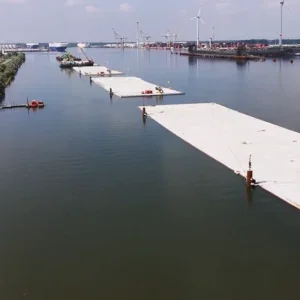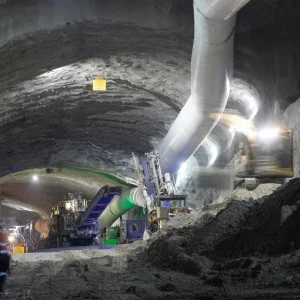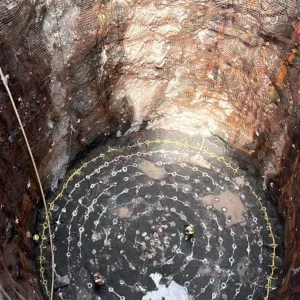Martino Scialpi has a story familiar to many in the industry: childhood memories of whizzing through tunnels in his father’s car, staring up in wonder as they pass through one after another. Elisa Comis has a tale possibly familiar to many more – having studied mechanical engineering with a specialisation in materials science and technology in Rome; she worked for two years after graduation in the Interdepartmental Laboratory of Electronic Microscopy. “By pure chance I left microns behind for huge machines,” she says.
After a short training period in Italy with Condotte, Seli employed Martino as site manager, working on the Gilgel Gibe II tunnel in Ethiopia in 2007. Elisa was also employed by Seli – in 2007 she supervised the design and the first assembly/test of a double shield TBM at the factory for the MAVI Tunnel Project in Turkey.
The two met in 2008 when Elisa joined the project in Ethiopia. They moved to Hong Kong to work on the Tsuen Wan drainage tunnel in 2009.
Martino and Elisa are now employed by Robbins in a remote area of India working on the AMR project, the longest ever TBM-bored tunnel without intermediate access. Martino’s day-to-day job involves overseeing the boring process and corrective measures as well as TBM and geology interaction management, with some time spent on client and partner relationships. Elisa’s role revolves around TBM maintenance, including breakdown analysis, spare parts procurement and technical reports to upper management.
Elisa adds, “All are things that require an early wakeup, some daily time spent in the tunnel, and a good internet connection.”
Although they point out that their career has not been a long one, they already know the bracing side to a life spent tunnelling. “In Ethiopia we lived an unrepeatable experience of work and life. It was the site at which we faced and overcame a major geological event, probably the worst ever encountered by a TBM. The machine, stuck in squeezing ground under a pressure of 40bar, had to be rescued 4.2km from the portal, repaired and modified on site, reassembled at 3.8km, then finally resume the excavation of a by-pass tunnel. The memory of the desperate struggle to get this job successfully done is something that will forever join all the people who worked there.
“Both of us, our skills and characters have were forged in Ethiopia, by experienced ‘old style’ supervisors in a very difficult work environment. The tiredness and frustration sometimes felt there has made us stronger, and made the satisfaction of our first breakthrough greater. In the same experience, we understood even the most advanced TBM cannot do anything without a carefully selected team. This is the reason why nowadays we daily spend so much energy looking after the personnel.”
However strong the working friendships are, the Italians are a long way from home. “We are learning to appreciate the minor things when we are back even for a few days. The most difficult aspect is the distance from families and friends, and the special moments of their lives we are missing.”
On working far from home together, they say, “We use our university and professional training to be complementary: geotechnical and managerial aspects from one side; mechanical and procurement matters from the other. The constant communication and dialogue makes each of us present in two places in the same time. The constructive discussion of two different points of view helps us in making important decisions. Outside of work, we have our lucky life together, our plans for the future but also our families and friends far away from here. The reciprocal encouragement to persist also in sad moments drives us forward.”
“I’m proud to be an active part of these enchanting constructions,” says Martino. “I’m proud to share this interest with a close circle of people, because this is not a job for everybody.”
Elisa finishes by adding, “In this close circle of people, women are even rarer. I’m proud to be a field service technician.”
Elisa Comis and Martino Scialpi share fond memories of unofficial but helpful signs at worksites around the world, including ‘This TBM has no brain – please use your own’ and ‘Your mother doesn’t work here, please wash your own dishes’







